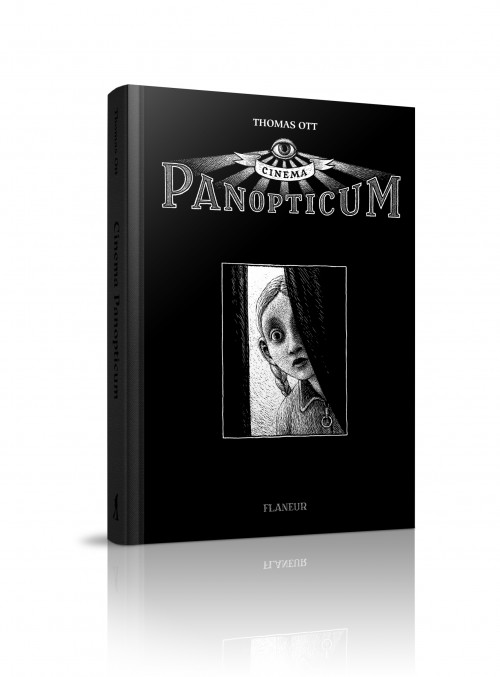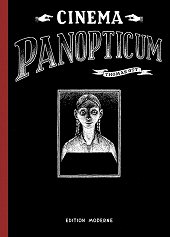




The multi-talented Thomas Ott makes animations, is the lead singer of a band called The Playboys, and on top of this, he makes political satires, comics and caricatures for various newspapers and magazines. Among his other books are ‘Cinema Panopticum’, ‘Greetings from Hellville’ and ‘The Number 753-6-96-8’. Since 1995, he is a regular contributor to Lapin, the publication of the French publisher L’Association. The titles of his books, like ‘Tales of Error’ and ‘Hellville, Tales from the Edge’, already suggest that he is fond of the darker sides of life, which he depicts in his books with painstaking clarity. His work was published in various European magazines, including Ahai, Hochparterre, Okay Erotik Magazin, Strapazin, Tagesanzeiger-Magazin and Weltwoche in Switzerland, Boxer, Geo-Spezial, Süddeutsche Zeitung and Tempo in Germany, as well as El Vibora in Spain and Bulles Dingues, Culte, L’Écho des Savanes, Libération, Stronx and Vogue in France. Luckily, the Swiss artist Thomas Ott makes wordless scratchboard comix, which helps in making his work known in the rest of the world.īorn in Berne, Ott studied at the Kunstgewerbeschule in Zurich and began working in the independent comics scene in the second half of the 1980s. Panopticum Paperback SeptemSpanish Edition by Thomas Ott (Author) 4 ratings See all formats and editions Paperback Language Spanish Publisher Ediciones La Cpula, S.L. Fantagraphics has since gained an international reputation for its literate and audacious editorial standards and its exacting production values.There aren’t many comix artists from German-speaking countries whose work has been translated into other languages. Fantagraphics quickly established a reputation as an advocacy publisher that specialized in seeking out and publishing the kind of innovative work that traditional comics corporations who dealt almost exclusively in super-heroes and fantasy either didn?t know existed or wouldn?t touch: serious, dramatic, historical, journalistic, political, and satirical work by a new generation of alternative cartoonists as well as many artists who gained prominence as part of the seminal underground comix movement of the '60s. Fantagraphics Books, 18. By the early 1980s, Fantagraphics found itself at the forefront of the burgeoning movement to establish comics as a medium as eloquent and expressive as the more established popular arts of film, literature, poetry, et al. Fantagraphics Books has been a leading proponent of comics as a legitimate form of art and literature since it began publishing the critical trade magazine The Comics Journal in 1976.


 0 kommentar(er)
0 kommentar(er)
